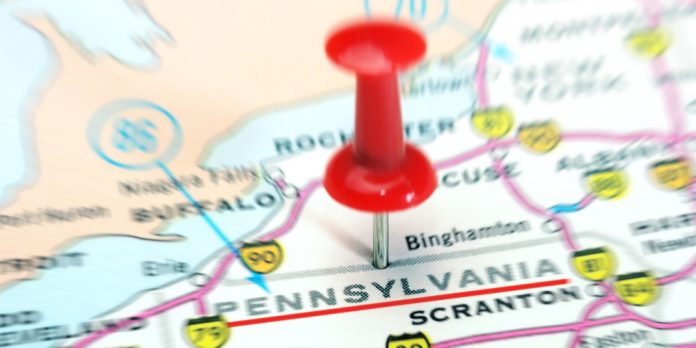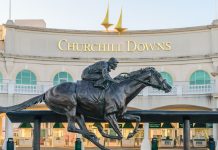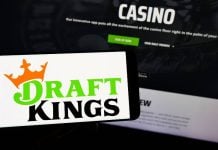Sports betting in Pennsylvania followed the seasonal trend in July, with volume slipping to $304m, its lowest level since July 2020. The fall is in line with a slower market that has affected nearly every major US market, according to PlayPennsylvania, which tracks regulated online gaming and sports betting in the state.
Bettors placed $304.4m in wagers at Pennsylvania’s online and retail sportsbooks in July, down 27.6% from $420.2m in June. July’s handle was up 84.7% from $164.8m in July 2020, which was the last month with a handle of less than $364m and featured the relaunch of baseball and the NBA after a months-long hiatus.
Lower volume sapped gross gaming revenue, which fell 35.3% to $27.5m from $42.5m in June, but up 101.3% from $13.7m in July 2020. The month’s gross receipts led to $19.9m in taxable revenue, which yielded $6.8m in state taxes and $397,124 in local share assessments.
Dustin Gouker, lead analyst for the PlayUSA.com network, which includes PlayPennsylania.com, noted: “Even with the NBA Finals and the Olympics to help boost the schedule this year, bettors in Pennsylvania and beyond just don’t engage sportsbooks as much during July.
“This year in particular saw a surge in nationwide travel, which means people were occupied with family vacations and other summer activities. That said, sportsbooks cannot wait for football season to ramp up.”
The drop in wagering has historical context. July was the lowest volume month in the US in both 2018 and 2019, before the pandemic permuted sports betting data in 2020.
“The time zone difference dampened interest in the Olympics, but they were likely never going to move the needle significantly anyway,” said Valerie Cross, analyst for PlayPennsylvania.com. “The Phillies playing better almost certainly helped. But seasonal dips this time of year are nothing to be concerned about.”
Online betting accounted for $275.4m in wagers, making up 90.5% of the state’s total handle in July. Once again, FanDuel topped the online market with $106.7m in online wagering — down 34.3% from $162.5m in June but capturing 38.7% of all online wagers in July. FanDuel’s gross gaming revenue from online betting fell to $12.3m from $19.7m in June, yielding $9.5m in taxable revenue.
DraftKings followed with a $66.2m handle, down from $86m in June. July’s handle produced $4m in gross revenue, down from $6.4m in June, and $2.8m in taxable revenue.
Penn National’s Barstool-branded app finished fourth in the state, behind BetMGM, with a $24.5m handle in July, down from $31.9m in June. Those bets led to $2.3m in gross revenue and $1.7m in taxable revenue.
Meanwhile, retail sportsbooks took in $29m in wagers in June, down from $40.9m in June. Those bets yielded $2.7m in gross gaming revenue, down 45.4% from $4.9m in June. Rivers Philadelphia topped the retail market with $5.9m in bets, ahead of Parx Casino’s $4m handle.
“The pandemic will continue to be the most important factor for the retail market for the foreseeable future,” Gouker said. “As the latest surge shows, the hope that retail sports betting would return to normal by football season seems overly optimistic.”
Gross gaming revenue from online casinos and poker rooms rose 3.6% to $104.5m from $100.8m in June. Year-on-year, igaming gross revenue is up 52.9% from $68.4m in July 2020. July marks the fifth straight month surpassing $100m in gross revenue.
July’s gross revenue was whittled to $88.7m in taxable revenue, down from $88.9m in June. That still produced $38.2m in state and local taxes.
Online casinos and poker rooms have now produced $508.1m in state and local taxes over the more than two years since launching in July 2019. Only New Jersey has wrung more tax revenue from online casinos and poker with $662.6m — but that market launched in November 2013, nearly six years before Pennsylvania.
“As closely as it now tracks with New Jersey, no state benefits more from online gambling than Pennsylvania,” Cross said. “There was a lot of concern in the industry that regulators had initially set tax rates too high, and a slow start to the industry seemed to back that up. Now it seems that Pennsylvania’s aggressive taxing has been a clear win for the state.”














